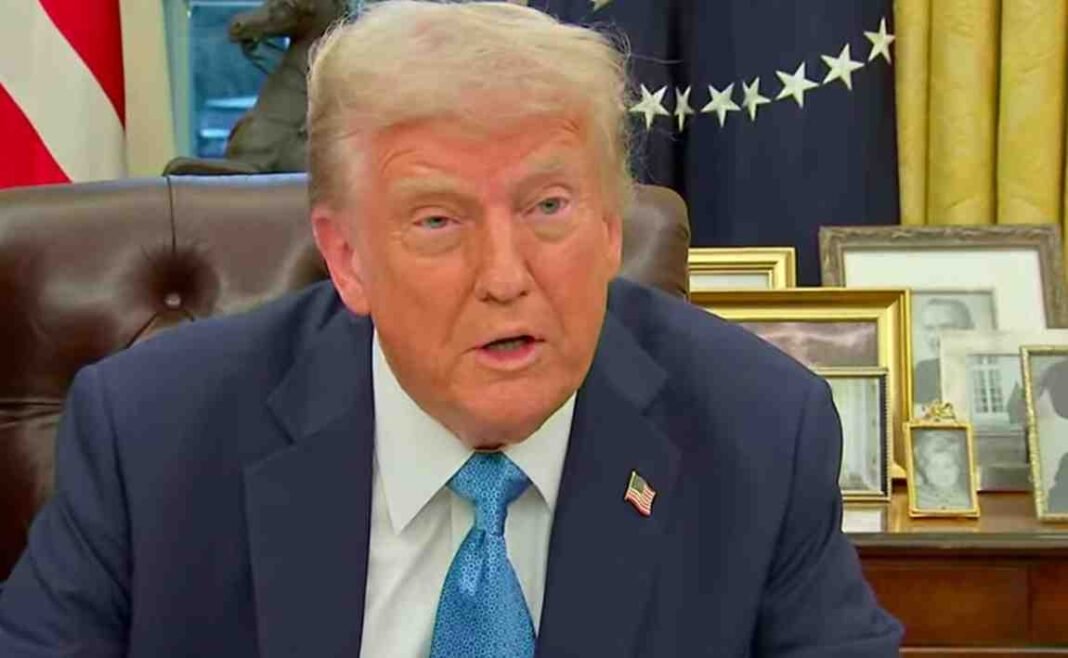The US President Donald Trump has reignited fears of a global trade war by indicating that he would “absolutely” consider imposing tariffs on the European Union (EU). This statement comes on the heels of his previous tariff actions against Canada, Mexico, and China, which have already led to retaliatory measures from those nations.
Trump’s Stance on EU Tariffs
During a recent press briefing in the Oval Office, Trump was asked about the possibility of tariffs on the EU. He responded candidly, stating, “Am I going to impose tariffs on the European Union? You want the truthful answer or a political answer? Absolutely.” He expressed his dissatisfaction with the EU, claiming, “The European Union has treated us so terribly.”
Historical Context of Trade Tensions
This is not the first instance of Trump targeting the EU with tariffs. In 2018, he imposed tariffs on European steel and aluminum exports, which led to a significant trade conflict. The EU retaliated with its own tariffs on American products, including whiskey and motorcycles, escalating tensions between the two economic powers.
Trump’s Broader Trade Agenda
Trump’s aggressive trade policies have been a hallmark of his administration. In December 2024, he threatened to initiate a trade war with the EU unless it increased its purchases of American oil and gas. This ongoing rhetoric underscores his administration’s focus on reshaping trade relationships to favor American interests.
EU’s Response to Potential Tariffs
In response to Trump’s comments, the European Commission issued a statement expressing regret over the U.S. decision to impose tariffs on Canada, Mexico, and China. A spokesperson emphasized that tariffs create “unnecessary economic disruption and drive inflation,” affecting all parties involved. The EU has vowed to respond “firmly” to any unfair or arbitrary tariffs imposed on its goods.
Commitment to Trade Relations
Despite the looming threat of tariffs, the EU remains committed to maintaining a strong trade relationship with the U.S., which is the largest trading partnership in the world. The spokesperson reiterated the EU’s dedication to low tariffs as a means to foster economic growth and stability within a rules-based trading system.
Upcoming Discussions Among EU Leaders
EU leaders are set to convene in Brussels to discuss the potential implications of Trump’s tariff threats. The meeting will likely focus on strategies to address the situation and reinforce the EU’s position in the face of U.S. trade policies.
Epilogue:
As tensions escalate between the U.S. and the EU, the prospect of a renewed trade war looms large. Trump’s willingness to impose tariffs could have significant repercussions for both economies, and the EU’s firm stance on retaliation indicates that the situation may further deteriorate if diplomatic solutions are not pursued. The coming weeks will be critical in determining the future of transatlantic trade relations.








